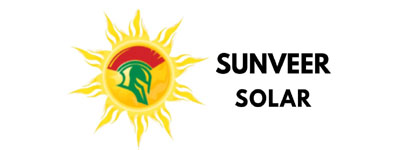Solar module manufacturer Canadian Solar posted a net income of $12.35 million in the first quarter (Q1) of 2024, an 85.25% year-over-year (YoY) drop from $83.71 million as the company continued to tackle pricing pressures in light of lower module average selling prices (ASP).
The drop in profit was offset by the lower manufacturing costs and higher contribution from battery energy storage solutions (BESS) sales.
The company’s revenue dropped by 21.88% YoY to $1.33 billion from $1.7 billion, primarily driven by the decline in module ASP and offset by BESS sales and an increase in solar module shipment.
Canadian Solar’s operating expenses during the quarter increased to $203.68 million, an 18.15% YoY increase from $172.4 million.
The company shipped 6.3 GW solar module shipments during the quarter, a 4% YoY jump. Of these, 236 MW were shipped to the company’s utility-scale solar power projects.
The company operates two business segments – Recurrent Energy, the clean energy development platform, and CSI Solar Inc., the solar module, BESS manufacturing, and the engineering, procurement, and construction platform.
Recurrent Energy recorded a 96.65% YoY revenue increase during Q1 2024 to $39.43 million from $20.05 million.
At the end of March 2024, the company’s total global solar development pipeline stood at 26.3 GWp, including 1.5 GWp under construction, 5 GWp backlog, and 19.8 GWp of projects in advanced and early-stage pipelines.
The company’s BESS development pipeline stood at 55.9 GWh, including 4.3 GWh under construction and backlog and 51.6 GWh of projects in advanced and early stages.
In January 2024, Recurrent Energy also secured a $500 million investment from BlackRock to help the company execute its strategy to move from developer to developer plus long-term owner and operator in U.S. and European markets and also grow its high-value project development pipeline.
The investment represents 20% of the outstanding fully diluted shares of Recurrent Energy on an as-converted basis, with the majority of shares still owned by Canadian Solar.
CSI Solar’s revenue for Q1 2024 was $1.3 billion, a 23.29% YoY drop from $1.68 billion, primarily due to the decreased module ASP, offset by the BESS deployments.
CSI Solar’s revenues from BESS surged 16-fold from $14.81 million to $251.47 million. The quarterly revenue figure topped the total of 2023.
The company’s utility-scale battery energy storage platform, e-STORAGE, had a total project turnkey pipeline of around 56 GWh, including both contracted and in-construction projects and projects at different stages of the negotiation process at the end of March 2024.
The platform has 3.1 GWh of operational project capacity contracted under long-term service agreements. The contracted backlog, including those under long-term service agreements, stood at $2.5 billion.
The company shipped 6.3 GW of solar modules and solar system kits to more than 70 countries in Q1 2024. The top five markets ranked by shipments were China, the U.S., Pakistan, Brazil, and Spain.
Yan Zhuang, President of Canadian Solar’s CSI Solar subsidiary, attributed the improvement in solar manufacturing costs to the decrease in polysilicon prices and the company’s upscaling of N-type TOPCon capacity.
He said, “With the rapid phaseout of PERC and the narrowing cost differential between these technologies, TOPCon has become the market’s preferred choice. We are well-positioned as we continue to reduce our manufacturing costs and enhance vertical integration. Additionally, e-STORAGE delivered a record quarter, achieving volume and revenue comparable to the totals for all of 2023.”
Addressing the concerns about the recently filed anti-dumping and countervailing duty petitions, Shawn Qu, President, Chairman, and CEO of Canadian Solar, said, “We have been navigating similar cases for over a decade and have time and time again, managed risk effectively on behalf of both of our company and our customers and partners. Furthermore, as Thailand is both a WTO member and a market economy, it likely faces lower AD/CVD risks. All local leadership and professional cross-functional teams are among our key competitive edges.”
Qu also said the company plans to invest over $1 billion in new manufacturing in the U.S. to build a long-term and resilient domestic solar supply chain.
The company announced the setting up of a 5 GW solar wafer production facility in Thailand in November last year and a 5 GW solar cell production facility in the U.S. in October last year.
Canadian Solar also announced that it has won three BESS projects, totaling 193 MW, in Japan’s first long-term decarbonization power source auction, securing 13.3% of the total awarded project capacity. The projects are expected to start commercial operations between 2027 and 2028 and feature its latest SolBank 3.0 system from e-STORAGE.
Go to Source
Author:
